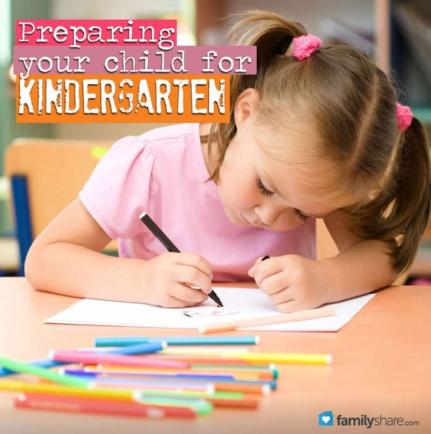
There are few things in life that make a parent more nervous than sending a child to kindergarten for the first time. This is especially true when it is a first child going away to school, and the parent hasn't experienced the joy and the worry of letting a kindergartener go.
Often, this is the first time a child has spent any significant time away from home - and from mom. This can prove to be difficult for both the child and the parent. But if parents remember these three steps, they can make the transition from home to kindergarten enjoyable for their children and for themselves, and can help make their children's first memories of education wonderful and positive.
Trust your child's teacher and be supportive of her
Teachers from kindergarten through high school are highly trained, and no matter how long they've been teaching, teachers are required to keep their skills sharp, and up to date. As a high school teacher myself, I know this very well. Kindergarten teachers are well aware that they are the first of many teachers their students will experience throughout their educational careers, and though they are often considered "just" kindergarten teachers, they are as highly skilled, often more, than their colleagues in the higher grades. They are the ones entrusted with building the first foundations of children's education, and they take their job very seriously. Mostly, know that your child's teacher cares about her, and will do everything she can to help your child develop the skills she will need to progress on to the higher grades.
Prepare your child for school
Find a way to get your child used to the idea of going away to school, and that the experience will be a positive one, rather than an anxious, or frightening one. The school your child will be attending likely allows the parents and kindergarteners to come to school and meet the teacher and get to know the classroom where they will spend much of their day. Make sure to take advantage of this, so that your child can meet her teacher, help her teacher have an understanding of what skills she already has, get to know her classroom, and become used to the idea that she will be going away to school soon, and can start getting excited about it.
Trust that your child will adjust to being at school
Kindergarten is a big step for a child, and is a big part of a child's growth into eventually being completely independent. It is important for parents to support their children in taking this step. Again, if this is the first time a child has spent significant time away from home, there may be some separation anxiety, and a child may have a hard time at first in saying goodbye to a parent. If a child is clingy on the first days of school, it is important for parents to understand their child's anxiety, but not to feed it by lingering longer than they need to. Again, trusting the teacher, and the child's ability to adjust to school is important here.
I remember my first day of kindergarten. I was terribly nervous, but when my mom dropped me off, my teacher, whom I'd already met the previous spring, involved me in an activity in which I happily became engaged. When I finally thought to look around for my mom and saw that she wasn't there, I felt a little afraid. But my teacher was so skillful at engaging me in my learning activity, that I quickly forgot my fear. After that, I adjusted to the idea that I was a big girl, and didn't need to be with my mom all the time.
Because of my mom's support of my teacher, and her trust that I could adjust to being away from her, my first experience with school and with kindergarten was a very positive one, which helped me develop a very positive attitude toward my education as a whole.
Help your child understand that school is a fun and rewarding experience
As you send your own child to kindergarten, remember that while it can be a little scary, both for you and your child, it can also be a wonderfully rewarding time, and a great opportunity for your child to learn to be confident and independent. And this will help build a positive foundation for the rest of your child's educational experience.

